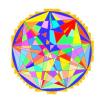-
Content count
453 -
Joined
-
Last visited
About NotVoid
-
Rank
mostly not void
Recent Profile Visitors
3,467 profile views
-
Hi Differently. It looks like if you click on the PayPal button for the PDF book, that the PayPal web site still allows you to enter in a credit card number to pay for the item without creating a PayPal account, so it looks like you can still buy the book if you have a credit card and don't have a PayPal account. If that still doesn't work for you, you can email 'dean at qi dot org' and probably arrange to send them a money order instead. All the best...
-
Many people generalize about daoism and say things like, "daoists do this", and "daoists do not do that", etc. However, as I have pointed out here before, the term daoism covers many things, and IMO there is a wide variation in views and practices in daoism. Therefore for someone to say that daoists don't concern them self with what might happen after death is very misleading, if not completely false. Most definitely there are branches or schools or practices under the umbrella label of 'daoism' which do concern them self quite a bit with such things. If you want to read a book written by a daoist from Lao Shan who goes into a lot of detail of his experience with topics such as 'life after death', and the notion of karma, etc. then you can purchase the book in PDF format translated fully into English here: 'Dao and De: Life and Afterlife' by Wu Dao Zhenzi. http://qi.org/products/ Scroll down to the bottom of the web page for the PDF book 'Dao and De: Life and Afterlife' by Wu Dao Zhenzi. As the author of this book points out, what he is describing in the book is not a belief system, where a person is just told how things are supposed to be, and they can either then believe it or not, but he describes a system of practices which the author learned as a disciple at a daoist temple which allows a person to learn about such things for them self through direct personal experience, just as we learn about the physical world around us through direct observation and experimentation. Whether any given person accepts such a premise as being potentially valid or not is not really the point, but it is the approach that the author of the book said he followed in his daoist training in a temple on Lao Shan before the cultural revolution, if I remember correctly now.
-
I see a few people seem to be getting fairly bent out of shape and going on the attack against others simply because those others have expressed some skepticism about what is shown in these videos. Why would some people get upset and go on the attack against others just because some other people have a different opinion than they do? The answer is of course because of belief. When a person has certain beliefs which are at least fairly important within their world view, they will immediately start feeling very uncomfortable if they are presented with information or views which may oppose something they really want to believe. Some common reactions/responses when this occurs are: 1) Completely ignoring the opposing information or arguments. 2) Going on the attack (personal insults, strange rationalizations, make untrue accusations, introduce red herrings and straw man arguments, etc. etc.). Since we have definitely been seeing a fair bit of the above from a couple of persons here, it is a pretty sure bet that they are reacting from a belief/world view protection position. Unfortunately there is just little to no chance of reasoning with a person when they are acting/reacting in such a way, as I am sure everyone has experienced many, many times in their life. There are three positions that a person can take when encountering something that is a fair bit out of range of their common everyday experience: 1) Accept it and believe it at face value without any questioning. This can occur when this out of the ordinary thing or event or whatever fits in with some beliefs a person already holds. Since it helps support some beliefs a person already has, it can be embraced with little to no questioning. 2) Neither believe or not believe. Just simply reserve coming to any conclusions at all until you are able to get a lot more information and/or see or experience this in person for yourself, etc. 3) Reject it and believe it is definitely false, again just based on face value. Like 1) above, this would also be a matter of belief if a person doesn't have some decent evidence to back up their belief that it is definitely false. So, from the above three items we can see that 1 and 3 are matters of unconfirmed belief unless a person already has some significant direct personal experience with the matter in question, or otherwise has a lot of decent and reliable evidence which strongly supports their belief. In the case where there is just not sufficient evidence or related experience to come to a reasonable conclusion about something, then I think that taking the stance in item 2) above would be the most reasonable position. This is all that I have been saying. Lao Sun Tao: Jumping all over people just because they express a bit of healthy skepticism about something like this makes no sense. I suggest you read what I wrote above here and think it over. No reasonable person is going to want to discuss things with you much around here if you start jumping all over people and twisting their words, etc. simply because they express a different opinion than you. If you are behaving this way, it is a pretty good chance it is because you have beliefs on the line which you are very sensitive about. If you are so sensitive about such topics, it is probably better to avoid such topics rather than attacking people who might have a different point of view than yourself, no? Treating people with fairness and respect can go a long way in this world. All the best...
-
Apeiron&Peiron: You are seeing all sorts of things in my comments that simply aren't there. I just pointed out that you can't take videos at face value, and that videos that contain stuff like this often turn out to be false if looked into. I actually also went way out of my way to state several times that it all doesn't mean that this guy's videos are necessarily fake, but there is no way to tell just from the videos. You are arguing against something that has little to do with what I have actually said. Bless you my son.
-
Sorry, but what you said doesn't make the slightest bit of sense. All I have done is point out that you can't take what you see in videos of this type at face value. Of course the videos are questionable to me. The only way I could say that what is shown in those videos might be real is if I have personally experienced such stuff myself in person. Otherwise there is just no way to tell for sure. I think that really should go without saying however. If I were interested in possibly learning how to 'make gusts of winds', I would try to meet with that guy in person and see for myself what he could do in person. That would be the only way to tell if there might really be something to it. Whether there is another video or videos with someone 'teaching' students to wave their hands around a tree that is already blowing in the wind, is neither here nor there. If someone wants to blindly believe stuff in videos like this that is their prerogative, but belief or not you still don't know if what you are seeing in videos like this is real or not just based on videos alone. Lao Sun Tao was admonishing people for not blindly accepting what is shown in some videos, which also doesn't make any sense. If you want to know if something might be real or not, the best way is to go and experience it in person and then you will have some real personal experience to base your opinion on, rather than just questionable videos. Why do I get the feeling that I am wasting my time pointing out things that should already be obvious anyway? All the best...
-
Lao Sun Tao: There is a world of difference between someone being open minded and someone blindly accepting most anything just at face value without first looking into it further and using some critical thinking. There is all kinds of false information and fakers and scammers and deluded people out there in this world. That being the case, it is just not a good idea to blindly accept stuff like this at face value. There might be something to it, but there is a good chance that it is not real as well. Some of us have been around the block more than a few times and know that a lot of stuff out there like this is often not what it appears to be, if a person takes some time to look into it further. Rather than admonishing people for not blindly believing as you do, why not put in some effort and look into this further for yourself first? The fact is you just can't tell for certain if effects like are shown in these videos are real or not just by watching the videos, as I have already pointed out. If you want to blindly believe that what this guy is showing in his videos is real without any questioning on your part, that is up to you, but my suggestion for you, since you seem to be so certain it is real, would be to contact the guy and ask him if you can visit him in person to watch a demonstration of what he can do up close, in person. If he says no, or otherwise starts making excuses then that would seem to be kind of suspicious, right? If he lets you come to see a demo in person, arrange to go see him and then report back here on what you have seen. That way it won't just be blind belief any more on your part, but you will have made an effort to look into and see what is really going on. All the best...
-
I think it is probably a good idea to hold some healthy skepticism towards anything along these lines that is shown in videos, because videos can leave a fair bit of room for various types of tricks to be used. Everything from off camera tricks and video editing to video image editing and generation and manipulation effects can be used to fool people. This doesn't mean that any given video of this type is necessarily fake of course, but when you factor in other factors like the high degree that he can supposedly easily whip up the wind in a concentrated area and whatever else he demonstrates, it sure seems at least questionable. The guy also doesn't seem to give any info on his website about exactly where he supposedly learned these types of 'skills'. That may be another warning sign that things may not be quite right. People who are reasonably skilled at doing video graphics manipulation and CGI and that sort of thing can create some pretty convincing effects, and such software is readily available these days. Here is a video example that I think shows how CGI can sometimes be quite convincing if done pretty well. My point being that just because you may not see signs of obvious video tricks in a video, it doesn't mean that tricks of some sort or another were definitely not used. In the following video, some digital graphics students made a CGI video utilizing 3D graphics generation and manipulation techniques etc. which is completely fake, but their video went viral shortly after they posted it, and they had millions of people completely fooled or at least unsure if it was fake or not before the students later posted a comment on their video pointing out that the video was not real, and was done using CGI techniques as part of a graphics course they were taking. The eagle in the following video is a 3D graphics generated and manipulated image. It is not a real eagle, and no child was lifted off the ground by an eagle. All video graphics manipulation. Completely fake. Again, my point being that some healthy skepticism about what you see in any video these days that has something questionable in it is probably a good idea. When it comes to videos or still images, it is just hard to say for sure these days about whether something might be faked or not. Golden Eagle Snatches Kid If the guy who made those 'aerokinesis', etc., videos is the real deal, he should have no problem demonstrating to independent third parties in person. If he hasn't done so, and until he does so in front of some credible independent third parties, then there seems to be at least a few different reasons here to be skeptical of his videos. Another reason to be skeptical is that he is selling online courses to supposedly teach others how to do this. When someone is selling something and producing videos like that to help generate business for what they are selling, then I think that's even more reason to be skeptical. Again, this all doesn't mean it is necessarily fake, but I think there are at least some good reasons to have some healthy doubts here.
-
The concept of karma doesn't necessarily have any connotation of punishment, or concepts of heaven and hell. That all depends on the exact school of thought as well as individual interpretations. In some schools of thought karma is described along the lines of actions evoke or 'attract' certain other following actions or conditions. In other cases I have heard the concept of karma being described along the lines of 'mental attachments' which continually lead one into certain circumstances which reflect those mental attachments or mental state. So karma could be thought of as actions invoking other actions and conditions, or as mental attachments leading one into certain specific conditions like iron being pulled towards a magnet. What a person accepts as possible in that area may depend on their background and particular school(s) of thought they hold to, and their own personal experience, etc. Many far Eastern schools of thought hold to some concept of karma or at least something along those lines. What any given person may accept or reject as possible or reasonable in these regards is another matter. There is likely no clear cut right or wrong there.
-
Silent Thunder, yes, I think it is human nature to assume that our assumptions and perceptions and interpretations about the world and universe around us are mostly pretty accurate and reliable, as after all our minds are constantly being fed back with information through our senses which continually 'confirms' those assumptions and perceptions and interpretations. The problem as I see it is it appears that the information that is constantly feeding into our minds through our senses is very much unconsciously filtered and massaged by our belief systems and associated belief protection mechanisms, etc. I would suggest that this may possibly be occurring at a much higher degree than any of us might realize and be able to easily accept. Are we all looking at the world around us as it really is, or as we collectively perceive it to be? The modern world views of today are no doubt quite different in various ways than they were one and more centuries ago, and I think there is no reason to assume that changes in world views and subsequent 'understandings' will not continue to evolve over the coming decades and centuries as well.
-
Well we are all in the same boat just trying to make our way the best we can. Like most anyone else, I am far, far from perfect.
-
Hi Karl. I have not suggested anything in my comments here about consciousness altering 'reality'. I have suggested that whatever 'reality' may be, it seems beliefs can have a strong influence on how we perceive it. I have observed that this typically seems to happen at an unconscious level, but I think we can raise our awareness of how this process works and become more conscious of those mental constructs and processes which strongly influence our perception. Regarding consciousness having a part in possibly creating or influencing/altering 'reality', although I have not suggested anything about this, it seems to me that for all anyone knows for certain there could at least possibly be something to such a concept. I think It would be an unsupportable belief for someone to suggest that such a thing is definitely impossible, just as it is an unsupportable belief for someone to suggest that 'reality' definitely only consists of what we can currently observe and measure and interpret with our physical senses and current physical instruments and current scientific world view, and that our current scientific views of 'reality' are completely accurate and complete. I think current trends in modern physics give indications that whatever reality is, it seems it may well possibly be a fair bit stranger than such a simplistic Newtonian-like view of the world and universe. In other words, It would be very much a matter of faith for someone to suggest that consciousness definitely does not interact with 'reality' in some way or another. This would be a good example of how unconscious beliefs can be mistaken for demonstrable fact. I sincerely doubt that anyone could convincingly prove such an assertion in any reasonable way, no matter how much they may *believe* such to be true. You continue to talk about 'reality' as if it is something that is already fully understood in all aspects. I just don't think that is the case. In actuality I think modern physics is showing that the 'deeper' scientists look into such things, the more puzzling it seems to become. From what I understand, modern day physicists are throwing theories around which include concepts such as multiple dimensions and multiple parallel universes, etc. It sure doesn't seem to me like things are at all so straight forward and clear cut. It sounds like possibly despite all we currently know about the world and universe, that we may possibly have a long way to go yet, and some current accepted theories could possibly even be altered yet in the future for all anyone really knows for certain. I won't harp on such things any much further, as I know the pointlessness of doing so. If someone has very strong and fixed beliefs about what 'reality' is, no amount of discussion is likely going to change that, even when it can be pointed out that at least some very qualified modern day physicists them self have been and are considering very strange and abstruse ideas as serious possibilities about 'reality', ideas which may stress and stretch the very limits of our conceptual minds. I personally still maintain the possibility that whatever 'reality' might be, it may possibly be much more different and mysterious at its essence than anything we currently may conceive and assume. That is the essence of what I have been suggesting here. I realize that such a notion may well conflict with some or even many people's beliefs about such things, but that is how I personally currently see things anyway.
-
Hello silent thunder. Even though something may be quite natural and a fairly simple process, I guess that doesn't mean at all that it will necessarily be easy.
-
Hi Karl. I am not committed to any particular point of view. My own personal observation however is that each and every one of us view the world/universe ('reality') through the filters of our beliefs. It seems to me that there may be little chance of ever getting a better understanding of 'reality' if a person does not first look into the nature of beliefs and spend some amount of time observing how our beliefs influence our world view. As an example of how important I think this is to the way we each perceive the world/universe around us (and likely within us as well), I have observed that when people are immediately dismissive or insulting or attack others' ideas and points of view that differ notably in some way from some important belief or beliefs that a person holds, that there is a pretty high chance that what is really at work is a natural unconscious protection response to try to help protect the stability of a person's own belief system. Because this occurs, it can be very hard for new ideas and points of view to even slightly penetrate the consciousness of someone who may have strong beliefs to the contrary. It appears that the stronger or more important the belief or beliefs are that are being challenged by some other idea or point of view, the stronger the unconsciously activated belief protection responses can be. Have you ever tried to convince someone of something that goes strongly against their beliefs or world view? Good luck with that. The reason I am mentioning all this is that If my observations are at all accurate about beliefs and the associated unconscious belief/world view protection mechanisms being in place in each and every one of us, then if a person does not ever take any time to look into this in them self to see how our beliefs and the associated unconscious belief protection mechanisms strongly influence our perceptions and ability to consider new ideas and concepts, then any other efforts put towards trying to understand 'reality' might possibly be quite hindered. I think there is nothing much more simple than mere self-observation to potentially help improve self awareness. My suggestion here is that any increase in self awareness also may, potentially at least, work towards an increase in our ability or potential to approach understanding 'reality'. Although perhaps from a materialistic point of view these may seem like two completely separate and unconnected things, I am suggesting that possibly these two things may actually be closely inter-related, if not inseparable. :-)
-
Karl, I think I see where you are coming from. It appears we differ in points of view., silent thunder, questioning is natural. There is nothing to fear from it.
-
I think that what we observe or think we observe, or what we can verify within a specific limited framework or system in no way necessarily determines the full extent or nature of reality. When working within the limitations of a framework or system, we are confined to those very limitations. The framework we are within may well highly filter or color or limit our view of what may be a much larger or very different picture overall. The framework we are in may be giving us a very limited or distorted view of overall 'reality'. Just because we cannot easily move or observe outside of that framework, it seems to me that this in no way means that only what can be observed and conceptualized and analyzed within the framework we are 'in' is all that could be real, nor do I think such an approach would necessarily be a complete or accurate overall picture of 'reality'. For all we know we could be way off the mark taking such an approach. A basic example I can think of is a person watching a movie in the dark in a movie theater. If the movie is well done and very captivating, the person is mostly only aware of what is going on in the movie projected onto the movie screen, and not aware of anything much else outside of that, at the time, and if other audience members aren't making noise. From inside the movie theater in the dark, we only know mainly about the movie but we can't observe or know much beyond that at the time and under those circumstances. That's not the best example, I know, but I think it gives the general idea of how a framework can be very limiting and misleading when trying to draw conclusions about a wide scale view about 'something' which may 'extend' way beyond the limitations of the tools at our disposal, whether they be physical tools or physical senses, etc. Therefore, what we think of as reality may potentially be far off from the mark. Whether it is or it isn't is anyone's guess, but as I have mentioned, I think sometimes some 'cracks' can appear, even if only momentarily, which may give hints that all is not really as it may seem. Also, as I have mentioned, there are also various 'cultivation' methods that may be used to potentially help us drop some of our limitations and filters we may have on our perception, if they work at all as advertised.






